Geometry Blog Posts

How to Import Images and Loft a Solid
Say you want to model an irregular shape, like a human head. How do you set up the geometry? Here, we go over how to do just that by importing images and lofting a solid.
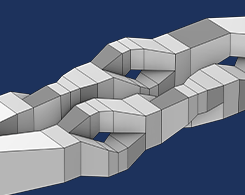
New Course on Building Geometry in COMSOL Multiphysics®
Explore an overview of our Learning Center course on building both simple and complex geometries in COMSOL Multiphysics®.
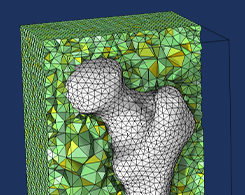
Generating a Simulation Mesh of a Femur From 3D Data
You can create a simulation mesh from 3D data in COMSOL Multiphysics®. This capability comes in handy when modeling irregular shapes.
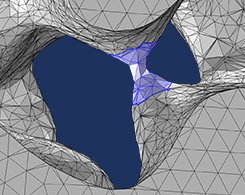
Editing and Repairing Imported Meshes in COMSOL Multiphysics®
COMSOL Multiphysics® includes several operations for modifying imported surface meshes. You can create, intersect, partition, and join entities, adapt and refine mesh elements, and more.
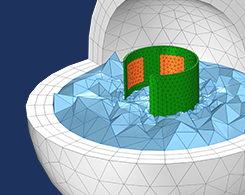
Wrapping and Warping Geometries for Analysis in COMSOL®
CAD parts are typically designed in an undeformed, as-manufactured state. When it comes to analysis, however, we are only interested in the deformed, as-assembled state.
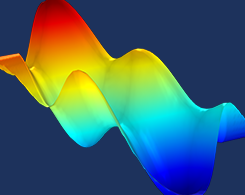
How to Convert Point Cloud Data to Surfaces and Solids
Sometimes, the only data you have before starting an analysis project is a set of points (also known as a point cloud). Did you know that a point cloud can be converted into a model geometry?
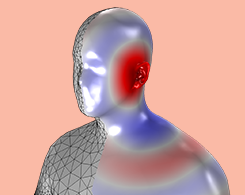
Computing the HRTF of a Scanned Geometry of a Human Head
Designing cochlear implants, hearing aids, headphones, and other audio devices requires precise measurements of the head-related transfer function (HRTF). Simulation and geometry import can help.
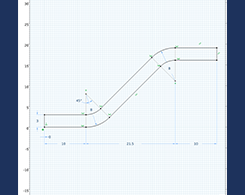
How to Use the Sketch Tools in COMSOL® to Draw 2D Geometry
Did you know that you can interactively draw and edit geometry right within the Graphics window in COMSOL Multiphysics®? Learn how to use Sketch mode with step-by-step video demonstrations.
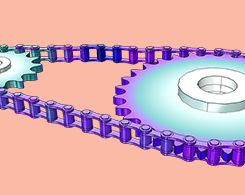
Building Roller Chain Geometries in the Multibody Dynamics Module
You can easily set up a geometry model of a roller chain, sprocket, or roller chain sprocket assembly using the built-in parametric geometry parts in the COMSOL Multiphysics Part Library.
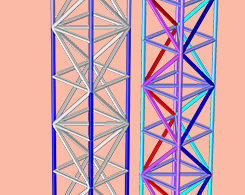
How to Perform a Sensitivity Analysis in COMSOL Multiphysics®
How do the parameters of your design affect its performance? Understanding this relationship is a valuable part of the design process. By performing a sensitivity analysis, you can do just that.
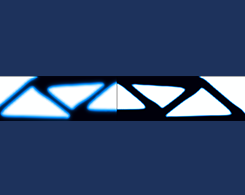
How to Use Topology Optimization Results as Model Geometries
Oftentimes, topology optimization is not the last step in your design process. In fact, you can use the results from a topology optimization study as model geometries for your next analysis.
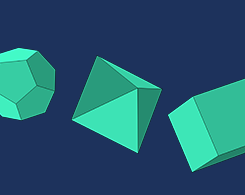
How to Use the Platonic Solids as Geometry Parts in COMSOL®
The Platonic solids, named after Plato, are regular, convex polyhedra that consist of the tetrahedron, cube, octahedron, dodecahedron, and icosahedron.
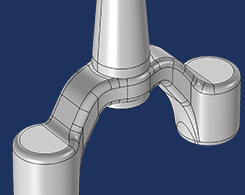
How to Automatically Remove Small Details in Your Model Geometry
Have you ever wished for an automatic way to remove small details in your model geometry that are causing an unnecessarily fine mesh or a poor mesh quality? Enter the Remove Details operation.

Using Geometry Parts and Part Libraries in COMSOL Multiphysics®
If you’re working with a model that contains complex geometries, you can use geometry parts and the part libraries to streamline and simplify your model setup.
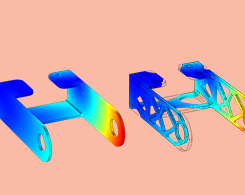
Performing Topology Optimization with the Density Method
The density method simplifies the process of topology optimization. Get an overview of how to use a special density feature for topology optimization in the COMSOL® software.

How to Use Interpolated Material Data to Model Irregular Geometries
Learn how to model an irregular geometry in COMSOL Multiphysics® by importing material data. The example featured here is for an RF simulation of a human head.
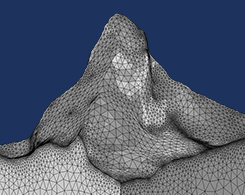
How to Build Geometries from Elevation Data to Model Irregular Shapes
Say you want to build an irregular geometry of a mountain. You can do so by creating a surface of an irregular shape based on elevation data stored formats such as text, image, or DEM files.
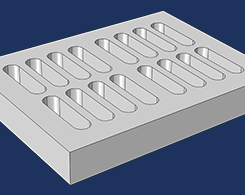
Creating a Model Geometry in COMSOL Multiphysics®
Learn how to create a geometry directly within COMSOL Multiphysics® using geometric primitives and geometry operations. Then, watch an introductory video series to see each step in detail.
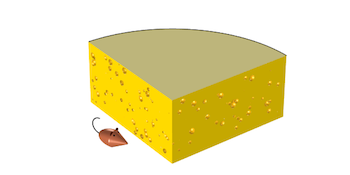
How to Create a Randomized Geometry Using Model Methods
What does cheese have to do with setting up a COMSOL Multiphysics® model? Here, we use the random holes in a piece of Swiss cheese to demonstrate creating randomized geometries with methods.
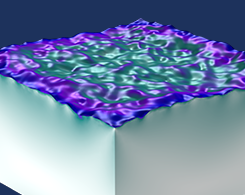
How to Generate Random Surfaces in COMSOL Multiphysics®
Get a comprehensive background and step-by-step guide to generating random surfaces in COMSOL Multiphysics®, such as rough surfaces and microstructures.
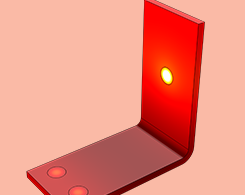
Efficiently Assign Materials in Your COMSOL Multiphysics® Model
Here, we go over 3 methods for efficiently assigning materials in your COMSOL Multiphysics® models. The included tutorial videos show step-by-step instructions for each related feature.
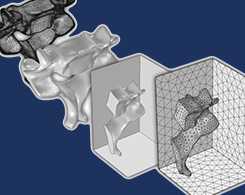
Improved Functionality and Tips for Importing STL and NASTRAN® Files
Learn how to import STL files originating from 3D scan sources and meshes in the NASTRAN® file format, as well as how to prepare them for analysis in COMSOL Multiphysics®.
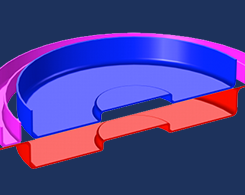
How to Reuse a Deformed Shape as a Geometry Input
Let’s say you deform a shape in your model (say, by applying a mechanical load to a thin piece of metal) and want to use this deformed object as part of a new geometry construction. How?
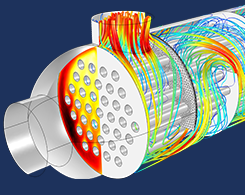
Streamline Your Simulation Workflow with Named Selections
Learn how to use named selections to streamline your simulation workflow in COMSOL Multiphysics®. Includes step-by-step instructions and an embedded tutorial video.
